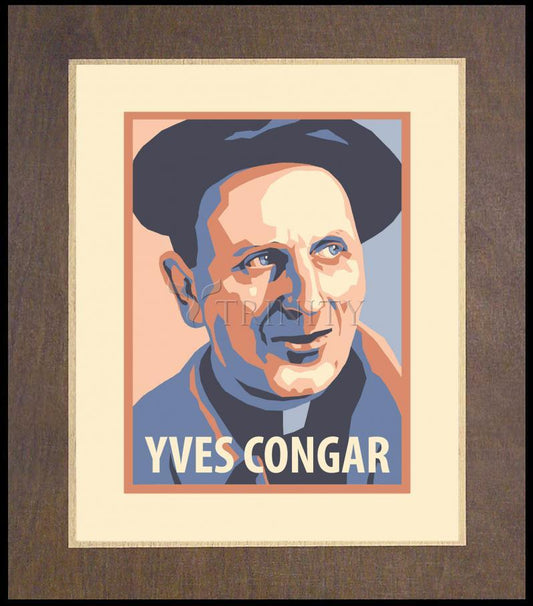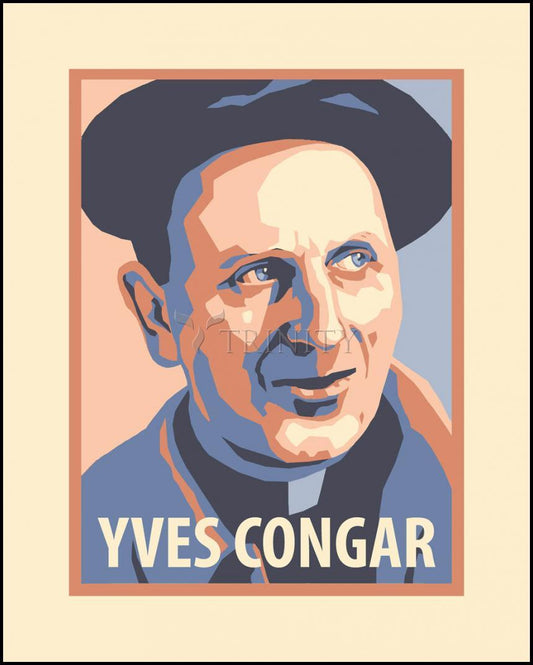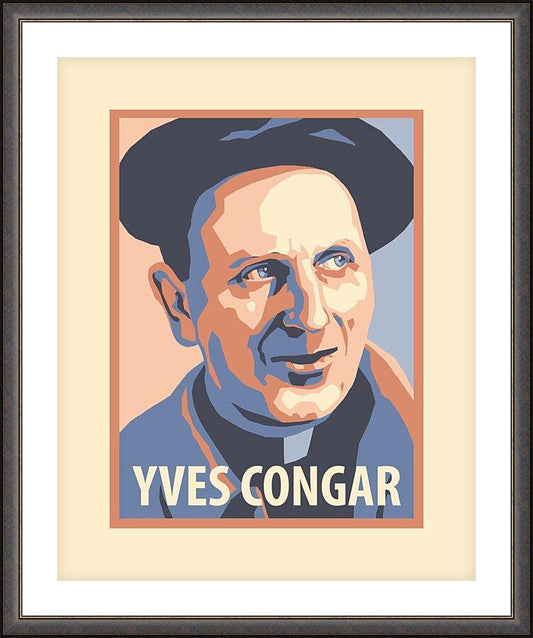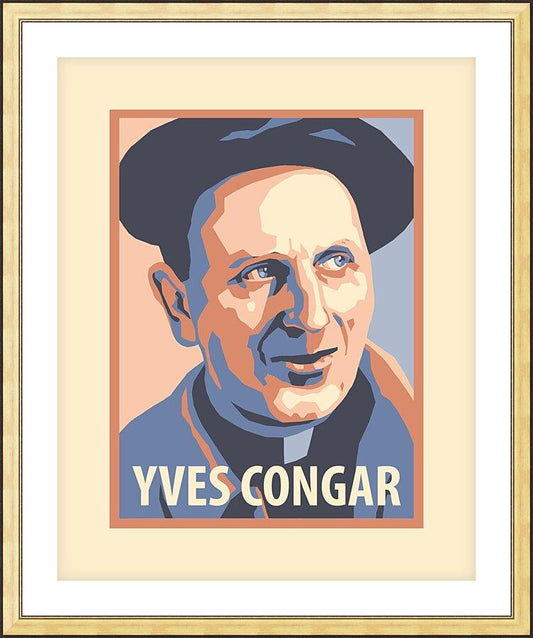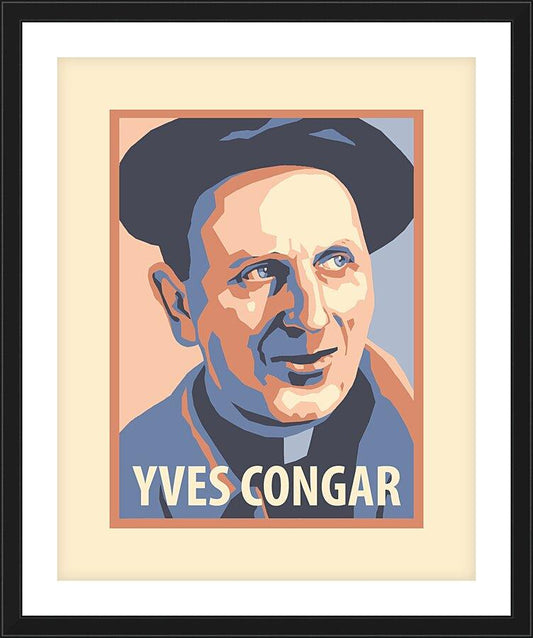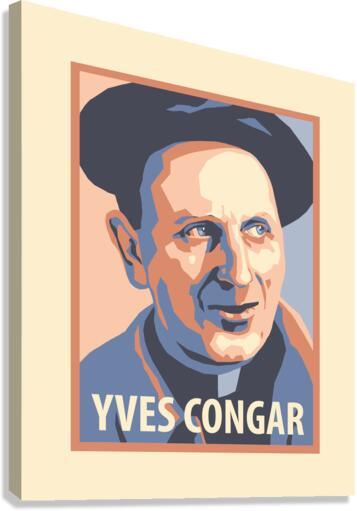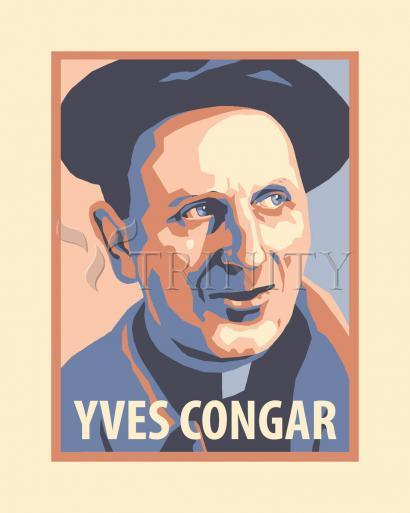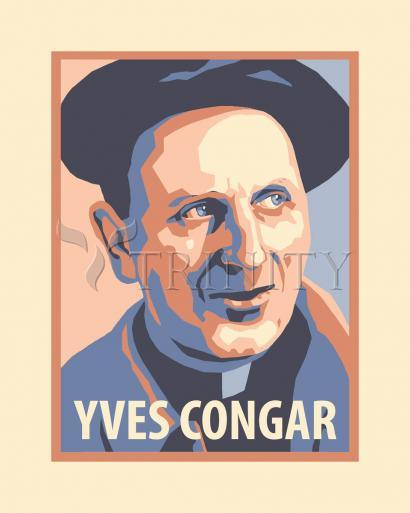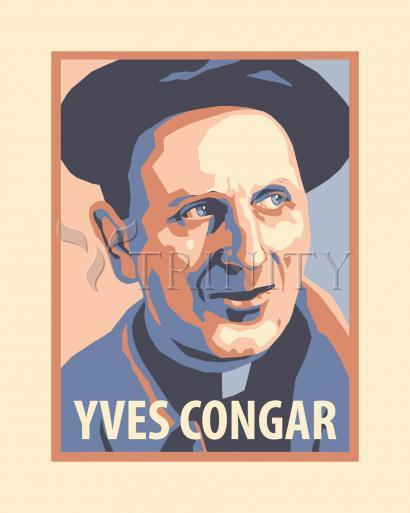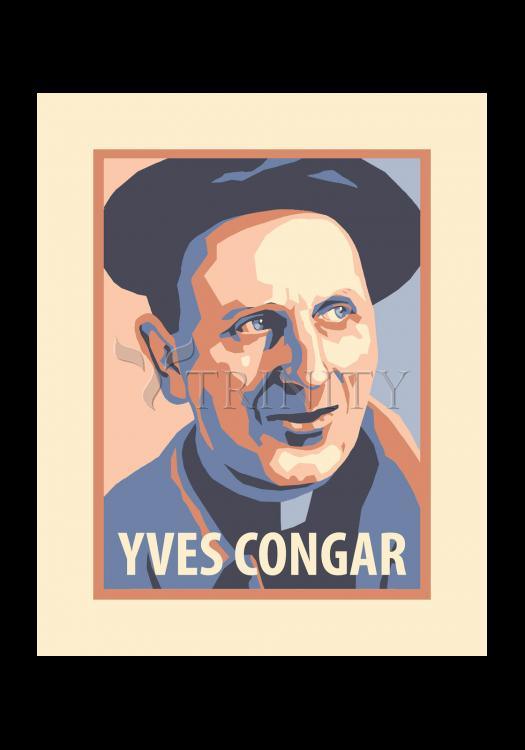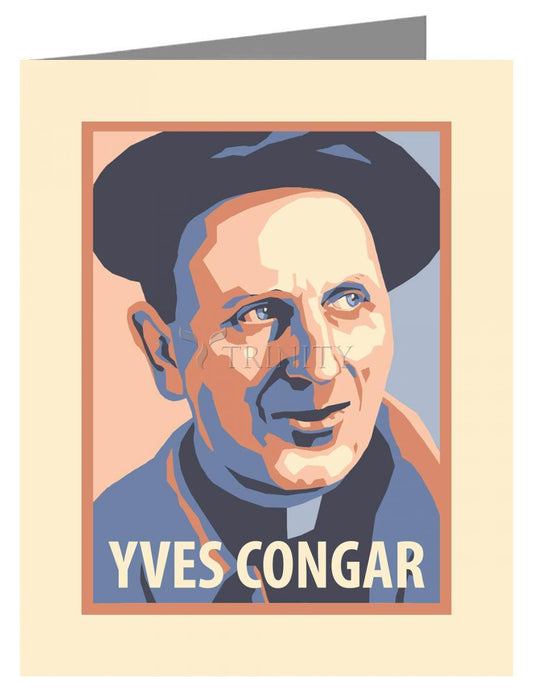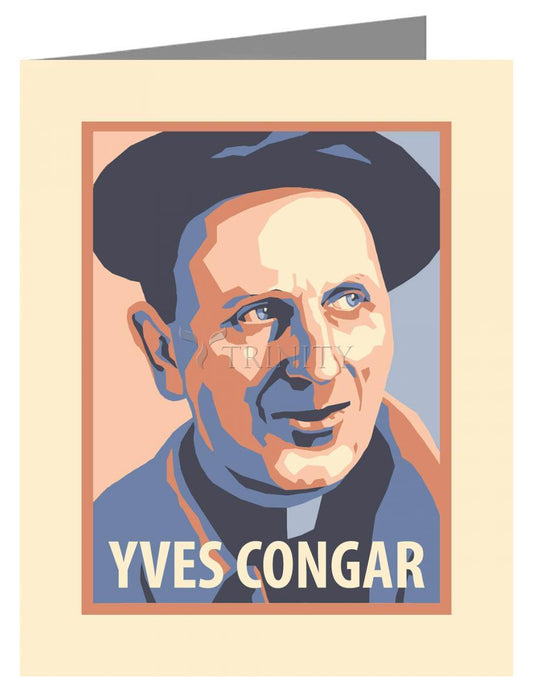Born in Sedan, in northeast France, in 1904, Congar's home was occupied by the Germans for much of World War I. During this time he kept extensive, illustrated diaries recording the occupation, which provide a unique historical insight into the war from a child's point of view.
In his early twenties, Congar spent three years in a Carmelite monastery where he encountered Thomistic philosophy through the works of the renowned lay philosopher Jacques Maritain and the Dominican theologian Reginald Garrigou-Lagrange.
In 1925 he joined the Dominican Order at Amiens. Following his theological studies at the seminary at Le Saulchoir in Etiolles, near Paris with its strong emphasis on historical theology, Congar was ordained a priest in 1930. During World War II he was drafted into the French army as a chaplain, and was held from 1940 to 1945 as a prisoner of war by the Germans in Colditz.
After the war, he continued to teach and to write, eventually becoming one of the most influential theologians of the 20th century on the topic of the Roman Catholic Church and ecumenism, and influenced also the thinking of Karol Wojtyła (the future Pope John Paul II) from the year 1946 onwards. Active in the ecumenical movement, Congar was once removed from teaching or publishing for a time by the Holy See, during the pontificate of Pope Pius XII. However, his reputation was rehabilitated, as he was made a cardinal, in 1994, by Pope John Paul II.
Congar encouraged openness to ideas stemming from Protestant Christianity. He published on wide ranging topics, including Mary, the Eucharist, lay ministry and the Holy Spirit, as well as his diaries from his experiences during the Second Vatican Council. His works include The Meaning of Tradition, I Believe in the Holy Spirit and After Nine Hundred Years, which addresses the East-West Schism. His personal experiences were recently published in Journal d'un theologien 1946-1956.



